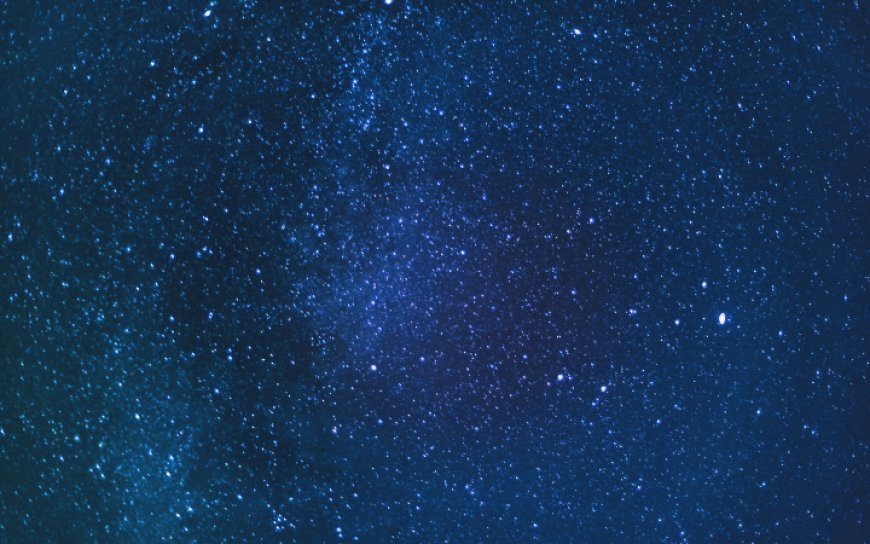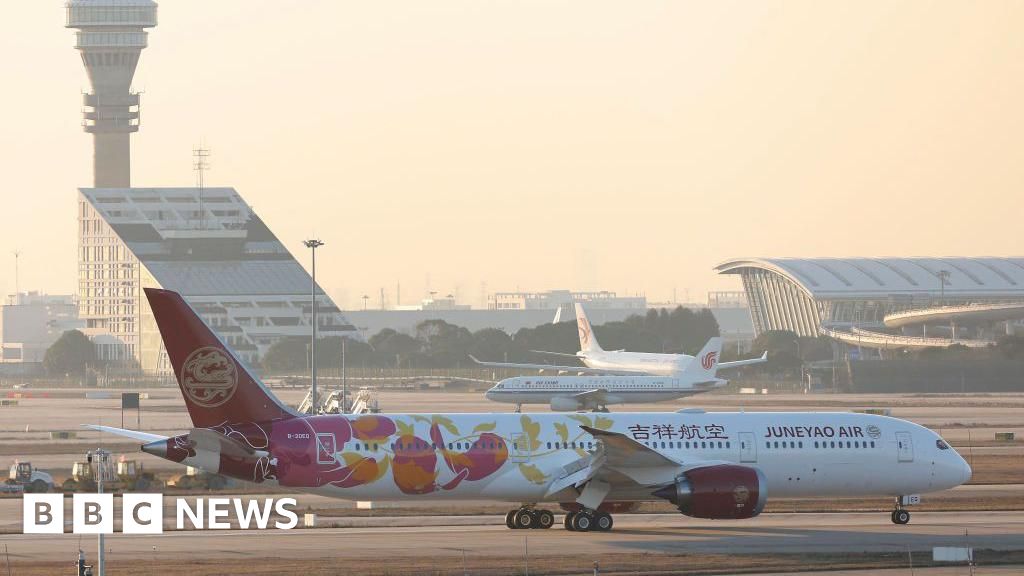The Regeneration Handbook: Conclusion
“I know it is possible for leaders to use their power and influence, their insight and compassion, to lead people back to an understanding of who we are as human beings, to create the conditions for our basic human qualities of generosity, contribution, community, and love to be evoked no matter what […] I know The post The Regeneration Handbook: Conclusion appeared first on Shareable.

“I know it is possible for leaders to use their power and influence, their insight and compassion, to lead people back to an understanding of who we are as human beings, to create the conditions for our basic human qualities of generosity, contribution, community, and love to be evoked no matter what […] I know it is possible to create islands of sanity in the midst of wildly disruptive seas […] And I have studied enough history to know that such leaders always arise when they are needed most.” —Margaret Wheatley, Who Do We Choose to Be?
If we’re going to do what it takes to actually save our world, we need an unshakeable conviction that it’s worth saving. I occasionally hear from people (including some who are generally well-meaning and intelligent) that nothing we do could possibly matter in the grand scheme of things, so why bother? Everything ends, all species eventually die, and Earth would probably be better off without us. I suspect a lot of us secretly hold these kinds of beliefs to some extent.
While understandable, this logic is based on several fundamental misperceptions about the nature of reality. Life is not purely chaotic and meaningless, nor is humanity beyond redemption. In fact, there is ample evidence to suggest that we are miraculous beings on an extraordinary planet in the midst of a vast, sacred universe. Though detachment promises transcendent peace, it never delivers. Deep down, we know everything is interconnected, and ultimately, we can’t fool ourselves.
In his 2011 documentary, Journey of the Universe, evolutionary cosmologist Brian Swimme explains that if the rate of our universe’s expansion was just one millionth of one percent faster, it would have flung its primordial matter so far apart that galaxies and planets wouldn’t have formed. Similarly, if our universe had expanded even one millionth of one percent more slowly, everything would have collapsed into a black hole, ending the potential for life as we know it. Swimme sums up the meaning of this by saying, “What we’ve discovered is that we’re living in a universe that is expanding at exactly the rate necessary for life and structure to come forth. It could be, then, that even though we can’t call the early universe ‘alive,’ we can understand it as ‘life-generating.’”
NASA scientist James Lovelock expressed a similar idea in his 1979 book, Gaia: A New Look at Life on Earth. Although his “Gaia hypothesis,” which describes our planet as a self-regulating superorganism, was initially ridiculed, it has become increasingly accepted by the scientific community. Key evidence supporting it includes the consistency of global temperature, atmospheric composition, and ocean salinity throughout Earth’s history. Since life began, global temperature has remained remarkably constant, even though the amount of heat radiating from the sun has increased by about 25 percent, and despite salt being continually washed from land into the oceans, salinity has hovered around 4 percent for billions of years. This is partly thanks to tiny creatures called coccolithophores that capture excess salt in their shells and deposit it into the ocean floor when they die.
Although it boggles the mind to try to understand how trillions of individual organisms could cooperate to achieve such a mutually beneficial state, our own bodies are made up of trillions of individual cells that work together every minute of every day to maintain an optimal balance. While we may never fully comprehend how life works, it undeniably does. It intrinsically knows how to enable more and more life to thrive, and human beings have this same regenerative potential.
Technology continues to progress, but we’re still far from being able to create anything as complex, intelligent, and beautiful as an earthworm, let alone a tree, a butterfly, or a human being. Standing on the leading edge of 14 billion years of cosmic evolution and 3.5 billion years of the evolution of life here on Earth, if we pause for even a moment to consider how much struggle and sacrifice it took for our ancestors to get us here, it’s impossible to believe that throwing all of that away is no big deal.
While we might envision a sci-fi future where we leave a ruined Earth behind to hop around from one galaxy to the next, we should check the math on this. The closest potentially habitable planet to Earth is currently thought to be Proxima Centauri b. Even at the fastest speed ever recorded for manned spacecraft, it would take a person nearly 114,000 years to travel there. For practical purposes, we should consider ourselves here for the duration. Earth really is our only home. There’s no Planet B.
The good news is that Earth will survive whatever we throw at it, and it’s highly unlikely that humanity will go extinct in the near future. What’s much more likely, if we fail to act, is that billions will suffer and die, and the range of possibilities available to subsequent generations will be greatly diminished. This is why we must rise to the challenges of our times.
We can’t simply tune out our world, telling ourselves that someone else will handle it. If we excuse ourselves from taking action because others aren’t acting either, nobody will step up and our world will gradually become smaller and more dangerous. However, if we can find the courage to lean into this Great Transition, our bravery will inspire others to do the same.
| The Dominant Paradigm | Evolutionary Change |
| Reality is chaotic and meaningless | Reality is miraculous and intelligent |
| Life is disposable | Life is sacred |
| Humanity is inherently destructive | Humanity shares nature’s capacity for regeneration |
| It doesn’t matter what I do | Everything we do makes a difference |
| We’re already doomed | Our story is still being written |
Beliefs inspiring apathy and action.
We might even consider that the journey humanity has been on for the past 10,000 years has been a necessary stage in our overall evolution. We could imagine our species as an unruly teenager who has rebelled against its parents to test boundaries, differentiate itself, and figure out who it really is. Now, having run up against global limits for the first time, we might finally be ready to enter into species adulthood with its many responsibilities, but also its wisdom, dignity, and power. In this way, the Great Unraveling could serve as an initiatory ordeal for humanity.
In many traditional societies, rites of passage mark the transition from adolescence to adulthood. Sometimes, these trials are extremely intense, and not everybody makes it back alive. As frightening as this is, it seems to me a more helpful way to look at our current predicament than as some kind of cosmic mistake or proof that humanity is fatally flawed.
Although we can and should condemn the many atrocities that have transpired during this time, it’s also essential that we appreciate the many advances modern civilization has brought about. From the ability to connect with people all over the world and access vast stores of knowledge with just the push of a button to increased life expectancy and material comfort, we should work to preserve these things as much as possible even as we seek to abandon many other harmful trappings of modernity.
We need to combine the best of the past with the best of the present to bring about a regenerative future. Eight billion people simply cannot return to being hunter-gatherers. For the first time ever, humanity is faced with having to consciously create a just and sustainable global culture.
However, this unique challenge also presents a unique opportunity for us to awaken and realize our unfulfilled potential. I would even go so far as to say that I believe we can’t be truly happy or whole at this time in history unless we are involved somehow in helping to heal our world.
Take just a moment to envision what humanity might achieve in the future if we’re able to cross this evolutionary threshold. Our sun isn’t expected to boil Earth’s seas for another one to two billion years. How might we continue to evolve if we can find a way now to live in harmony with nature? It’s possible that this existential crisis could draw out of us qualities we’ve never before imagined. As Swimme poetically observes: “The planet earth was once molten rock and now sings operas.”
This is what I come back to when all other hope is lost: an appreciation of the sacredness of existence and my responsibility to uphold and embody it as best I can. We all have this potential. It’s in our DNA, embedded in the fundamental patterns of our universe. Like it or not, we are all protagonists in a story that will be remembered for generations to come. What do we want those who come after us to say about us, perhaps sitting around the fire in the ruins of the postindustrial age? That we sat by and watched the Great Unraveling unfold on the evening news or that we did everything we possibly could, just as soon as we knew?
The Regeneration Handbook: Transform Yourself to Transform the World by Don Hall was published on June 11, 2024. This is the sixth and final excerpt from the book Shareable has published.
The post The Regeneration Handbook: Conclusion appeared first on Shareable.
What's Your Reaction?




















